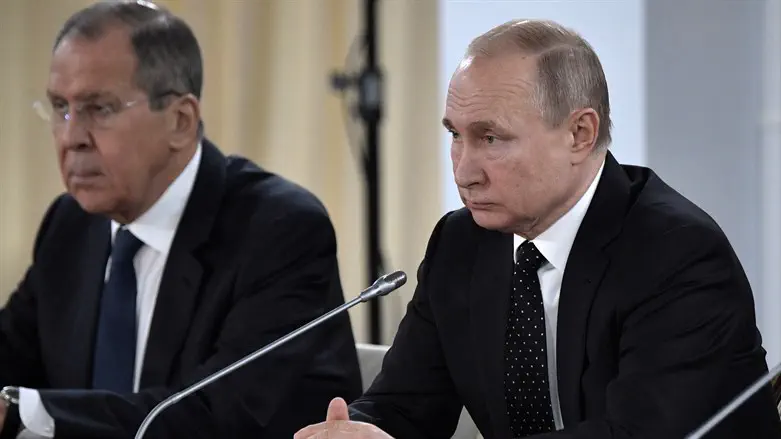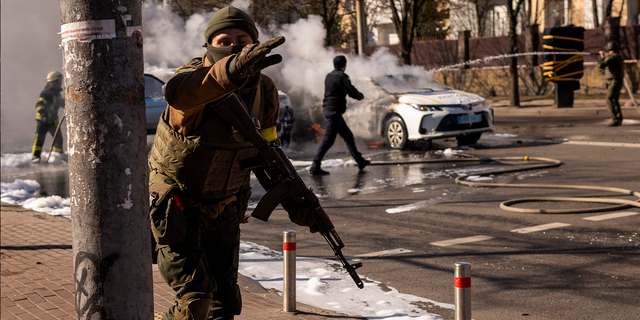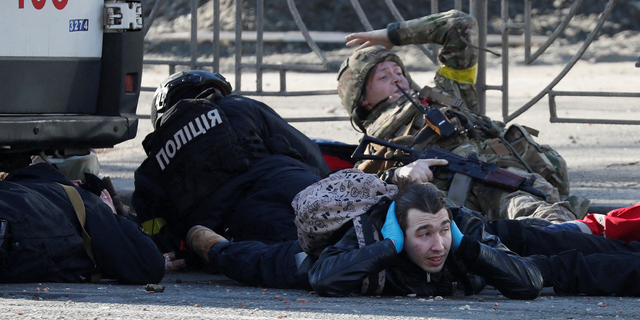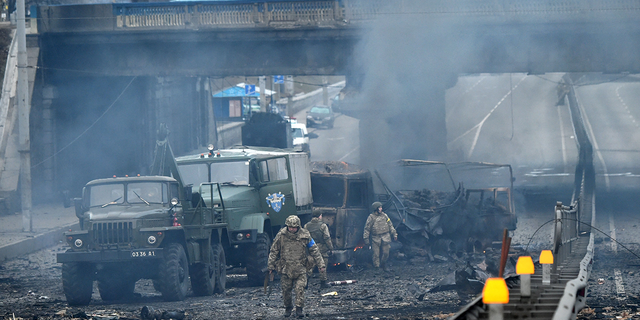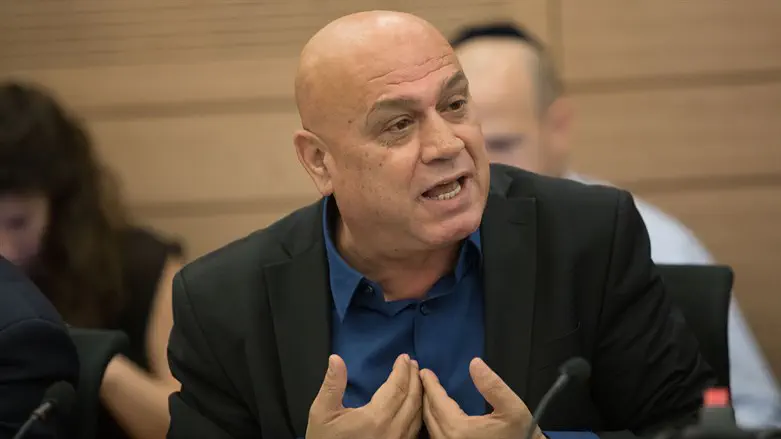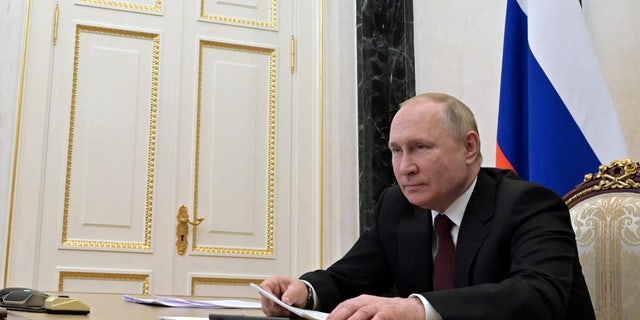by Steven Kopits
The newly emerged Biden Doctrine is an unfolding disaster, both abroad and at home.
The U.S. continues to sit passively on the sidelines while the Russian army pounds Ukraine. It is all too pathetic.
Nevertheless, President Biden has listed as a key priority the prevention of U.S. military deaths in armed conflicts. In his August 16, 2021 speech at Arlington Cemetery, President Biden declared:
How many more generations of America's daughters and sons would you have me send to fight Afghans — Afghanistan's civil war when Afghan troops will not? How many more lives — American lives — is it worth? How many endless rows of headstones at Arlington National Cemetery?
With this speech, he laid out what may come to be known as the Biden Doctrine, that there would be no conflict so small that the U.S. would not run away, no act of cowardice too craven, no desertion of allies too treacherous, and no commitment to democracy or global security worth securing with military force beyond those agreed on paper.
On that day, his net approval rating (approval minus disapproval) stood at +6.2%, entirely acceptable for a U.S. president. Three months later, on Election Day in November, it would fall to -8%, and the Democrats would take a historical shellacking at the polls. Virtually all the damage resulted from the means by which the U.S. pulled out of Afghanistan, leaving chaos, the Taliban, and now famine in its wake. Americans were appalled.
And here we are again, with the stakes predictably amplified. Why has Russian president Putin chosen now to invade Ukraine? The answer is simple: the Biden Doctrine of unilateral surrender. What does U.S. military power matter if we lack the will to use it or cower before those who threaten us? By pre-emptively foreswearing military intervention in Ukraine, President Biden all but sent an embossed invitation to President Putin to take Ukraine at his leisure.
The White House pinned its strategy on sanctions but clearly did not believe they would work. Biden had taken to the podium multiple times in the last month declaring that Putin would invade. Yet President Biden, on February 25, stated, "No one expected the sanctions to prevent anything from happening[.] ... Putin's not going to say 'Oh, my God, the sanctions are coming.'" The Biden White House has chained its credibility to a policy that, by the president's own statements, it did not believe to be credible. Biden merely gift-wrapped Ukraine for Putin with meaningless sanctions that would deter nothing.
Were Ukraine in a part of the world far from the superpowers, certainly far from Europe or East Asia, the U.S. could afford to take a pass. India and Pakistan regularly clash over Kashmir, but the U.S. would not ordinarily weigh in on the matter. But Ukraine is different, for several reasons.

Image: Joe Biden. YouTube screen grab.
Regardless of the outcome in Kashmir, neither India nor Pakistan will be wiped from the map and neither country's democracy, such as it is, is threatened by the other. In the case of Ukraine, however, both democracy and survival are at stake. We are seeing the brutal, unprovoked invasion of one country by another, one which seeks to both destroy not only the other's democracy but the very nation itself. The stakes are enormous.
Nor is the location of indifference. The US is intimately involved in European security through NATO and has been for nearly three-quarters of a century. Ukraine abuts four NATO members: Poland, Slovakia, Hungary, and Romania. What happens in Ukraine affects the security of these NATO members, not to mention possibly sending millions of refugees across their borders in the coming days.
Critically, the war is about more than Ukraine, certainly from the Russian side. The intent is to roll back NATO and reassert Russia's Soviet-era sphere of influence over all Soviet Union states, as well as central Europe, notably the Baltics, Poland, the Czech Republic, Slovakia, Hungary, Romania, and Bulgaria, at a minimum. This would rewrite the entirety of the European security order and resurrect the perilous conditions of the Cold War. For Europe and, by extension, for the United States, this is an existential threat, just as it was during the Cold War.
Incredibly, for all the risks, Ukraine is not even the biggest threat. Russia has one sixth the population of NATO and 1/25 of its GDP. Russia is to NATO as Peru is to the United States — that is, not a peer. Putin is the Punk in the Kremlin and can advance only as long as the U.S. sits on the sidelines. As one seemingly knowledgeable, but admittedly unvetted, analyst assesses Russian fighting capability in the conflict:
The Russians cannot fight a modern war and their bullying capability is limited and would be ineffective against NATO's air power alone[.] ... A US-Russian war would look like Iraq '91, both by overwhelming asymmetry and by multilateral coalition backing.
The U.S. can beat Russia, perhaps handily. Not so China. China is a heavyweight, both economically and militarily, and it too is watching the Biden Doctrine unfold. If Biden fails to protect Ukraine, how can he lift a finger to defend Taiwan? Just as Afghanistan precipitated Ukraine, so Ukraine will precipitate Taiwan.
These are all strategic reasons to intervene in Ukraine, directly and with military force, right now. Failure to act here may well trigger a world war a year from now.
For Democrats, however, the proximate danger is political. Putin not only wants Ukraine, but also wants to humiliate the United States. He wants to show the U.S. as a fading power, cowardly and unprincipled. And it is working, because that is the essence of the Biden Doctrine: the avoidance of military casualties in the field at the price of national impotence and dishonor.
The American public, although rapidly having its fill of the Punk in the Kremlin, naturally has reservations about going to war with Russia. Nevertheless, if Kyiv falls due to the impotence of sanctions — President Biden's stated expected outcome and the essence of his strategy — the Biden White House will own the failure. It will own the humiliation of a loss, not to a great power, but to a punk who stole Ukraine on a bluff. And everyone at home and abroad will know that America did not lose on the field, but because we were cowards and ran away.
Americans can forgive many things, but they will not forgive humiliation at the hands of the Russians. The fall of Ukraine will be that humiliation, and it will bury the Democrats in its ashes.
Steven Kopits is the president of Princeton Policy Advisors.
Source: https://www.americanthinker.com/blog/2022/02/the_democrats_will_be_buried_at_kyiv_.html

